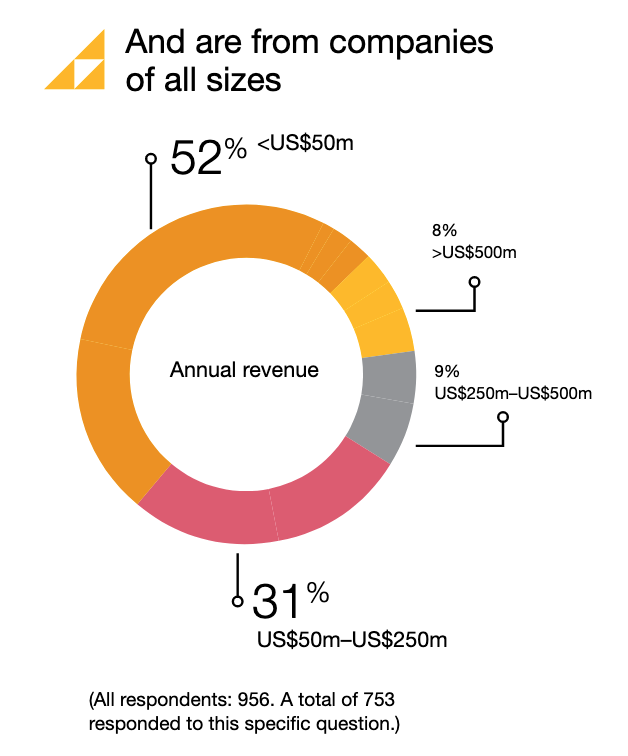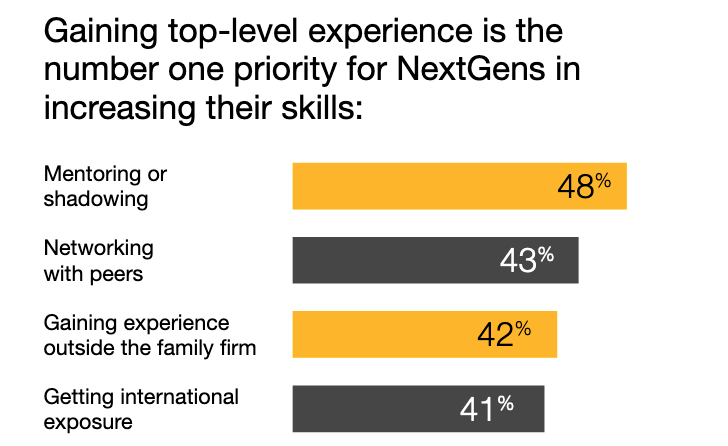Market Research
Next Generation Ready To Transform Family Businesses - PwC Study

New PwC research shows what is driving and frustrating a new crop of family business entrepreneurs, and what those advising them can learn.
Clued-in, digitally savvy and raring to go is the broad message coming from PcW’s largest study to date on what’s on the minds of the next generation of family business owners from across the world, and advice for those preparing to hand over to this generation.
PwC's Global NextGen Survey for 2019, published this week, said most next-gen adults are already deeply engaged in the family enterprise (70 per cent), with nearly half (48 per cent) already running significant internal operations, and a quarter (26 per cent) already in an executive director position.
They are pretty hungry to get cracking, with 41 per cent of them in family businesses aspiring to be an executive director within five years and nearly a third (29 per cent) aspiring to be a majority shareholder.

Still the report found that a significant minority felt that they were not being sufficiently supported, lacking what they called a "licence to operate". Although next-gens see themselves as agents of change, particularly bringing digital reform to the business; equally it is this area where support is often missing from family members in charge, PwC found. Its study polled 950 next gens in family business from 69 territories across 11 industries.
Such surveys can provide valuable insights for wealth managers as they mediate intergenerational family concerns and the tranfer of hard-won assets. The report suggests that younger members are really starting to assert themselves in family businesses, especially with technology adoption and introducing different cultural values, such as social responsibility and impact, beyond just profit. Without grasping how business objectives are changing across generations, wealth managers will be less able to chart a path and arbitrate family differences when business assets are passed down.

In a recent conversation with a leading philanthropy advisory group, managers told this service that a major difficulty for family offices and wealth managers has been relating to younger generations and understanding what they care about. Conversations are too often confined to legal and tax implications instead of bringing the different generations together around a vision and goals. This publication also recently reported on new approaches private banks and wealth managers are taking to capture entrepreneur business.
Swiss private bank Reyl has spent the last two years reorganising its business lines to serve family entrepreneurs and family offices in every facet of their business activity through a single gateway. The firm told this newswire last week, the aim is to put the family or entpreneur at the centre of a hub and spoke approach where its team can provide a seamless client journey all the way from business inception to transmitting it to the next generation or taking it to sale. Part of that wealth proposition is building trust and keeping families in the fold for generations.
"It's vital to understand the importance of a cross-generational approach. In some family businesses, there may be up to five generations all working together in one company. Each generation tends to have characteristics that can clash with those around them - but they also have insights, experiences and skills that can benefit the business,” Vicki Huff Eckert, US and global leader, PwC New Ventures said. "Weaving in the best traits from each generation - knowing when to let the young take the lead and when to rein them in — can make the difference between simply surviving and passing on a thriving enterprise to the next generation," she said.

Case studies
PwC includes a number family business case studies in the report,
often traditional businesses in established sectors, such as
transport, to illustrate how this new crop of family
entrepreneurs is pushing the boundaries. They offer some of the
sharpest accounts of how SMEs all over are being reshaped by
these younger family members, right down to one family member
changing the way colleagues sit together and address each other
in the workplace.
Another example shows the challenges of taking a third generation Palestinian-owned family business through a cultural transformation, where its 29-year-old CEO is taking bold digital decisions but also championing a meritocratic, performance-driven and diverse management culture at the firm his grandfather founded, and with his father's consent. "The current generation needs to make space for next gen voices to be heard, especially when it comes to digital strategy, professionalising management and attracting talent," the report said.
It also said the challenge for the current generation is to find more effective ways to help them transition into leadership. "Key opportunities include inviting next gens to work more closely with senior family members and the board, observing and learning how top-level decision making works," it said.
It found, not surprisingly, that confidence runs high among next-gens in terms of the skills they can bring. Over two-thirds saw their strongest attributes (those of problem-solving and leadership) as essential for developing the business landscape of the future. Close behind was a belief (among 64 per cent) that their skills would ensure their business is fit for purpose in the digital age. Those surveyed arguably possess a preternatural sense that their skills and values are what is going to secure the family legacy.
Peter Englisch, global family business leader for PwC in Germany said there is much to feel good about from the research. It shows that “next gens are ambitious and deeply committed to the family business. They see a clear role in securing the family legacy in an age of profound disruption and transformation. Yet they also see themselves as being held back and frustrated by a lack of opportunity,” he said.
"We should recognise, however, that these frustrations are realistic and pragmatic. What next-gens are looking for is support in terms of developing the expertise and experience they need to succeed." Their view is: 'Help me unlock my potential so I can gain the skills and experience I will need to take on the leadership roles I aspire to," Englisch said.